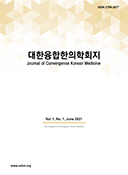 ISSN : 2799-2977
ISSN : 2799-2977
Gaming Disorder and Addiction in Children and Adolescents
Abstract
Objectives: Gaming disorder has been viewed as a disease in the DSM-5 and ICD-11. Its essential symptoms are loss of control over gaming, gaming becoming a markedly prioritized activity over other activities of daily living, and continued and excessive use of gaming despite negative problems occurring. Methods: Children and adolescents are especially vulnerable to gaming disorder because the striatal pathways related to reward develop earlier than the control regions of the prefrontal cortex. It is also associated with decreased dopamine D2 receptors. Addiction is related to 'want' and is explained by incentive-sensitization. In addition, allostasis, in which homeostasis is continuously achieved at a new target value, is also related to gaming disorder. In addition, personality causes, unchangeable factors, and external factors can influence on the onset of gaming disorder. Results: Prevention is the best solution for gaming disorder, and the role of parents is important. For gaming disorder, bupropion is used, cognitive-behavioral therapy and family-based therapy are also beneficial. Herbal medicine treatment such as Antler velvet and ginseng can be effective. Electroacupuncture and acupuncture using PC6, SP6, and LR3 has a correlation with relieving Internet craving. Ear-acupuncture was also effective in treating addiction. Conclusion: Psychologically, 'want' is an intense longing for reward and motivation, and is related to addiction. This 'want' may rather be related to avoidance, and game addiction in children and adolescents may be due to wanting to escape from academic stress or avoidance of comparison. Therefore, the importance of 'like', which gives pleasure in itself, increases. It can also be explained with Sasang Constitutional Medicine.
- keywords
- Gaming disorder, addiction, 'want' and 'like'
- Downloaded
- Viewed
- 0KCI Citations
- 0WOS Citations
